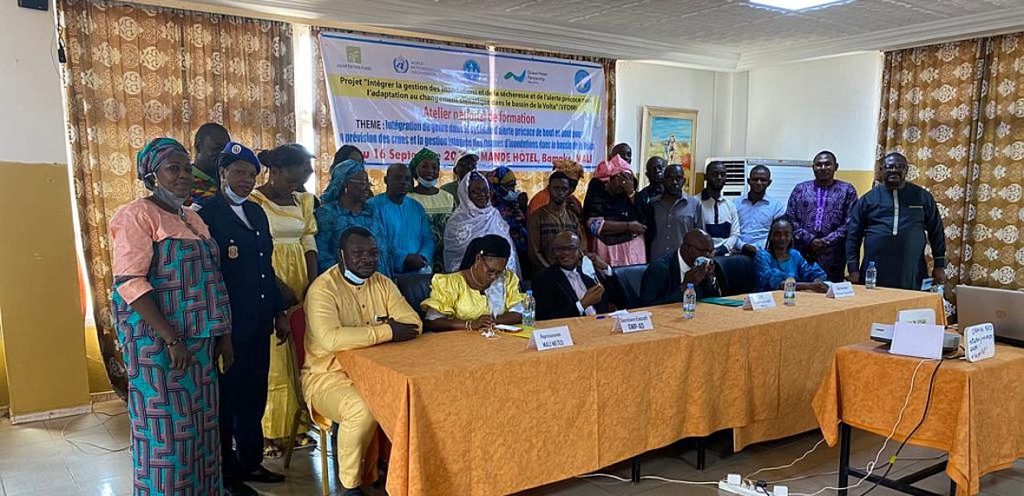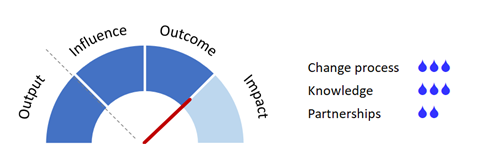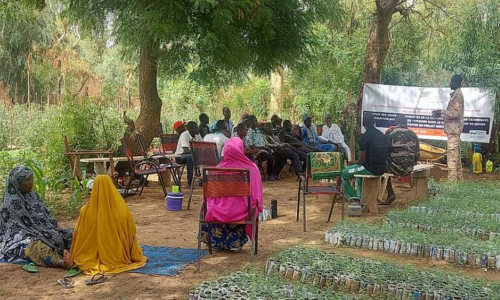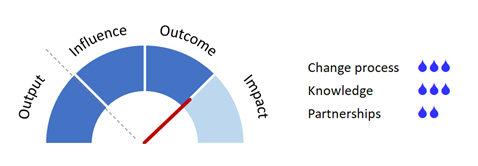Regional impact
New environmental law adopted by Togo
In a major step forward for Togo, GWP West Africa has supported the Government through a collaborative process to revise an outdated law, which has resulted in the adoption of a new Framework Law on the Environment in December 2023.
According to a Government note, “The bill adopted revises the 2008 Law in order to provide the country with an updated legal framework aligned with standards, to better meet challenges raised in the Government’s 2025 roadmap for sustainable development and to provide a springboard for strengthening people’s resilience.”
Four workshops in 2022 led to the revision, coordinated by GWP West Africa’s Water Security Climate Resilience and Gender Equality Expert, to integrate water security, climate resilience, and gender-related considerations, alongside emerging sustainable development issues, in the new law. GWP provided technical and financial support through the Water, Climate, Development – Gender Programme, and in partnership with the International Union for Conservation of Nature–coordinated Regional Water and Environment Project, of which GWP West Africa is an executing partner.
“This revision incorporates new concepts and completes the environmental management tools with strategic environmental and social assessments[…]. It takes into account emerging themes such as the circular economy, the green economy, the blue economy, carbon credit, and green mobility,” said the Government.

Mainstreaming gender in the Volta Basin

Annual floods in the immense Volta Basin threaten the homes and lives of 14 million people across Benin, Burkina Faso, Côte d’Ivoire, Ghana, Mali, and Togo. No efficient measures have been set up to mitigate against this yearly disaster, and women, youth, and vulnerable people are largely absent from decision-making bodies in the basin – affecting efforts to build climate resilience.
As part of the Volta Flood and Drought Management project, GWP West Africa, the Volta Basin Authority (VBA), and other partners are working to understand knowledge gaps and improve the situation. GWP West Africa facilitated training sessions in all six VBA countries in 2021 that identified the need for a regional action plan on gender mainstreaming. Gender mainstreaming is essential in all phases of flood risk prevention and management to guarantee that the specific needs of vulnerable communities are considered, building safer, more inclusive, and more resilient communities.
Thanks to the dedicated support of GWP West Africa and other partners, in 2023, gender was incorporated into the Volta Basin Flood and Drought Management Strategy. The Volta Basin Gender and Flood End-to-End Early Warning System Action Plan was also prepared to ensure that gender is considered in the operationalisation of the early warning system for the Volta Basin. Countries in the basin will now incorporate the recommendations, and GWP West Africa, as a long-term partner of the VBA, will continue to forge actions and decisions at the highest level.

Developing an integrated water plan in Niger
Niger faces regular droughts that are set to worsen with the impacts of climate change. Water governance is crucial to ensuring sustainable management, especially as access to safe drinking water and sanitation are already very low. This is being strengthened with the adoption of the Water Development and Management Scheme (SAGE), part of the Mekrou Phase 2 Niger project funded by the European Union and implemented by GWP West Africa in collaboration with other partners.

The first of its kind in Niger, the scheme incorporates integrated water resources management (IWRM) and helps authorities better plan water-related development activities in the Mekrou sub-basin. Concrete actions benefit the local population, such as training on ecosystem management and market gardening.
Thanks to GWP West Africa’s work and successful lobbying, the sub-basin’s two regional councils have now adopted SAGE. As a development planning document it will guide investors and development partners to meet the sustainable water priorities of both regions. Meanwhile, GWP West Africa have also implemented other activities through the Mekrou Phase 2 Niger project such as installing data collection equipment, implementing pilots of SAGE priority actions, and establishing IWRM capacity at local, municipality, and regional levels. Niger’s Permanent Secretary of IWRM has assured that the learnings from the Mekrou sub-basin will be extended to other sub-basins in the country.

